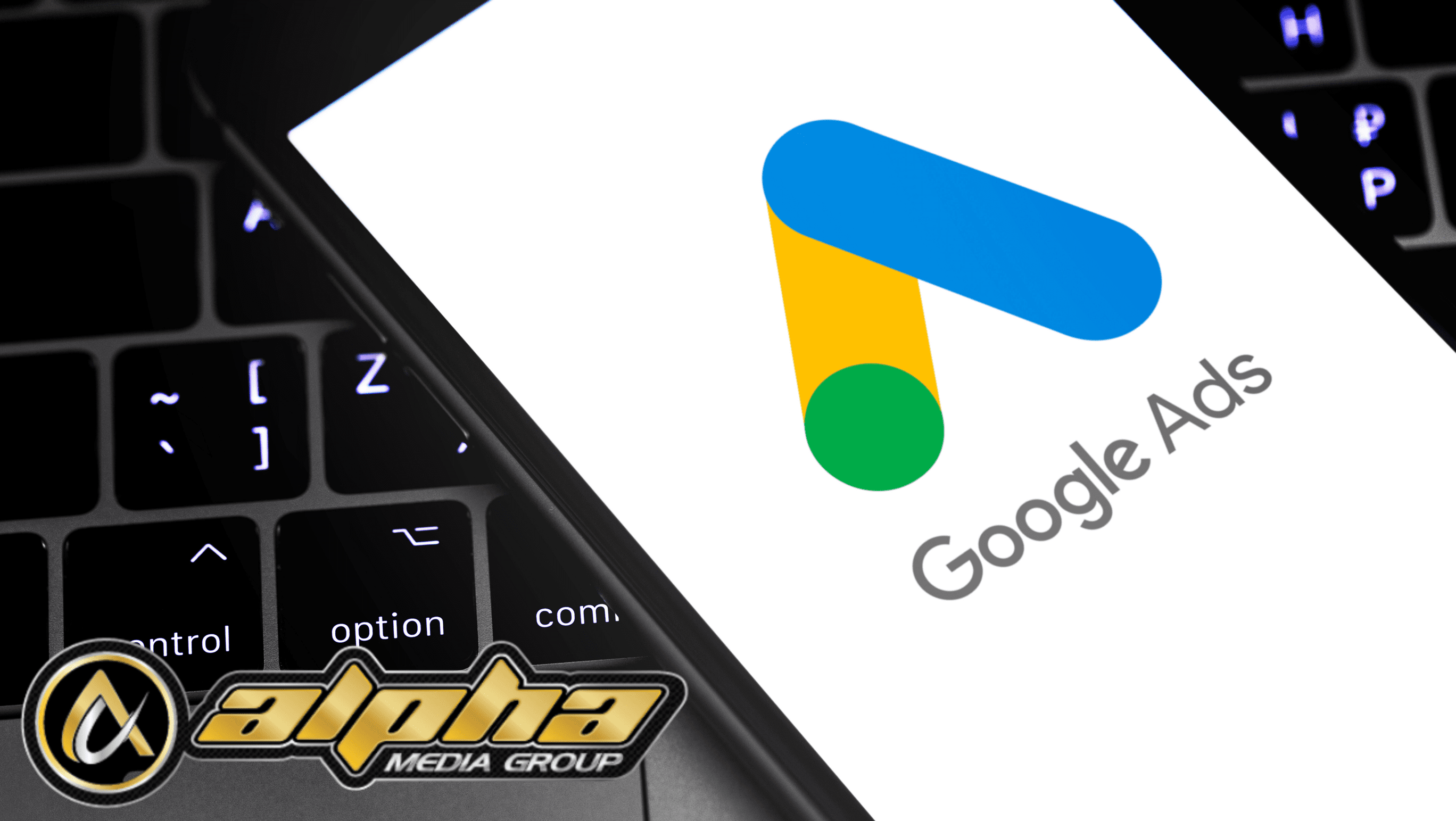No products in the cart.

Newman & Co Offering Nutrafol Vitamins!
Looking for a vitamin supplement that can improve your hair

Every second of the day, over 2 million searches take place on Google. Search Engine Optimization, otherwise commonly known by the acronym SEO, builds long-term brands for businesses. Google provides more immediate solutions through online paid advertising. Their primary product offered to bring in leads and start converting into sales is Google Ads.
This blog aims to give an overview of Google Ads and insights for those looking to create their next campaign or improve the existing management and conversions. This overview of Google’s platforms unwraps what advertising campaigns will do to increase online success for businesses.
Google Ads is a results-driven advertising tool that appears on search engine results pages (SERPs) to specific searches. These ads typically display above or beside the organic results on SERP page listings on Google.
How Do Google Ads Work?
Google Ads evaluates which keywords to choose for current campaigns and displays relevant advertisements best suited to these words when people search them with any one of its search engines. Google Ads has an auction-based pricing system that allows more competition, meaning advertisers pay when Google users click on the ads.
Further Defining Google Ads
Google is a high-functioning artificial intelligence system. Yes, it tracks consumer data for retargeting to the right demographics and psychographics for each service or product of a business. Google knows which advertisements will be best suited to what people are searching for while giving advertisements more chance of viewing, increasing clicks and conversions. Google’s algorithms also work in a bidding process where one can choose how much money to spend per click (CPC) or the maximum bid amount willing to invest over for clicks on each ad. The higher CPC makes sure Google displays a campaign link first or toward the top of the search. It’s a pay-to-play game to keep a competitive position of each ad in front of the client avatar.
How Does a Company Get Started Google Ads?
Decisions surrounding Google Ads take strategic and financial planning, and it is best to gather info from an experienced digital marketing agency. Google Ads are often a wise investment for targeting users who already know about a service or product but haven’t yet purchased. Recurring customers will most likely visit websites, social media, or contact directly. Recognizable brands have higher conversions. Furthermore, Google Ads work best when people research products and services online before buying, rather than making impulse purchases.
Google Ads won’t replace all branding and marketing—it’s just one component alongside email marketing, blog posts, search engine optimization, etc. Google Ads are just one piece of the puzzle regarding branding and successful, strategic digital marketing. Google Ads are highly effective for start-up companies and those looking to expand while bringing in daily, infused traffic to their business.
Google Ads campaigns need a good amount of strategic planning and preparation before getting started: remember that Google is an intelligent system and won’t show your advertisement if it isn’t relevant (which means little to no room for error!). Effective ad campaigns take time, but will often pay off once Google starts sending traffic through to your site.
Utilizing Google Ads
The benefits of Google Ads include increased brand visibility, better SERP presence (meaning higher rankings!), improved lead generation rates thanks to Google’s quality score algorithm, and increases in web traffic.
Google Ads can be a higher daily investment compared with other digital marketing campaigns, particularly if Google doesn’t think it’s relevant for the search query. Sometimes companies end up paying more than they should because Google isn’t showing their ad as often (work with an experienced ads manager to mitigate costs). The good news: there are ways around it, like using negative keywords (see below). Also, important to note, while the percentage is low, some consumers search using Bing, Yahoo, Duck-Duck Go, and others. Google Ads will not show up in these search engines. The number of traffic on competitive search engines is increasing. Google is getting some competition, but today in 2021 is still the Reigning Champ of Search.
Understanding the Pros and Cons of Negative Keywords
Negative keywords help Google know which of your ads should only show up on searches that include words you specifically want to avoid – this helps Google understand what you don’t want people searching on when it comes to using its search engine! For example, potential customers won’t see an advertisement if a user is looking for “junk removal near me” but nothing about junk removal in the Google Ads campaign, by default, and might get frustrated clicking through Google Search results without seeing any relevant information come up (which will mean poor CTRs!). Ensure that negative keywords are included in each of your Google Ads to avoid Google thinking you want your ad shown when it shouldn’t be. Google can understand more complex negative keywords like “how can I haul my junk to the landfill” or “cheap disposal near me.” Google knows which ads should only show up on searches that include these words, helping Google understand what kind of search query is being made by the user to serve them better. Google centers ad campaigns and SEO around relevant terms and consumer experience.
Retargeting
Retargeting ads allow companies to reach users who have previously visited their website but didn’t end up buying anything (i.e., they bounced) after arriving at a web or landing page. Furthermore, retargeting campaigns are great for generating new leads and increasing conversions because Google has already identified that the user is interested in your business! Google retargeting ads work by inserting a Google Ads code on each page of your site so Google can determine who visited and not just someone visiting for the first time. Google will help you reach these users through its display network.
Creating a Google Ads Account
There are some basic requirements when signing up for Google Ads. Businesses must be in good standing and have a Google My Business (GMB) account (the same as your Gmail, but specific to Google Maps). It is necessary to have an active website with relevant content, at least one page targeted towards local customers, and social media accounts to track metrics.
Additionally, a business that offers products or services should also register with Google Play or Google Merchant Center. If you’re starting on Google Ads—start modest and build up in time and measure your investment as your business grows! Pick five search terms/keywords to create ads so you can see if there’s any interest from users before investing a good amount into a Google Ads campaign.
Google Ads Tips to Improve Results on the SERP
Ensure each ad targets one specific search term rather than a broad topic. Adjust bids on your Google Ads so they don’t exceed the amount of money you want to spend per day/week/month. Use negative keywords for every single Google Ads campaign. Please make sure all websites/pages optimized for Google Ads include relevant content with quality images and videos (when applicable). Such adjustments will make it easier for Google Search bots to crawl through your site accurately, mitigating Google Ad spend from spam clicks.
Measuring the Success of Google Ads
There’s no one-size-fits-all answer when it comes down to how much return on investment (ROI) Google Ads will provide your business. In the beginning, it may take a couple of months of testing and measurement to create the “perfect ad.’ Google Ads offers a variety of metrics to help track performance, including – click-through rate (CTR) – Impressions, average position on the Google Search Engine Results Page.
Google Analytics is recommended way for tracking Google Ads because it shows you how many people visit from Google search and their demographic information and what they click on after arriving at your website or landing page. It’s also helpful to use Google Optimize, allowing A/B testing to different versions of websites or landing pages without having separate code snippets in each one, like with Google Web Designer. If you’re interested in learning more about Google Ads management and other marketing services, check out Alpha Media Group
The team of managers and ongoing tech support at Alpha Media Group can provide the strategy and management to maximize the ROI for the Google Ads campaign. When you’re ready to start Google Ads for your business, Alpha Media Group offers step-by-step plans customized for different companies from landscaping to medical certification; all types of blue-collar and white-collar businesses. Google Analytics and ClickCease are great tools for tracking Google Ads and mitigating fraudulent clicks on the ad campaign. ClickCease is software for click fraud protection that prevents wasteful clicks, spam, and fraudulent activity.
Bringing it all Together
One of the most important aspects of Google Ads is to track your traffic and conversions. Google Analytics and Google Optimize are great tools for tracking Google Ads. They show you the number of people who visit from search engine results and demographics information related to Google ads. Alpha Media Group offers step-by-step management plans custom-made for different companies if your business is ready to start Google Ads.
“When it comes to marketing on Google, The Map Pack, Organic SEO, and Ads, all are essential. If you take your presence out of any areas of digital real estate, you leave it open for your competition.”— Doug Newman, Owner of Fast Act Junk Removal
Contact Alpha Media Group by calling (214) 531-3979 or visit the website link below to get in touch with a member of the tech team to discuss Google Ads:
AlphaMedia.Group/Services
by Cassidy Somervill of Alpha Media Group

Looking for a vitamin supplement that can improve your hair

If you’re like most people, you have a lot of

If you’re like most people, you probably have a lot

Dallas | Decatur | Sacramento | Carson City | San Diego | Niles | Maui | Boise | Reno | San Antonio | Austin | Burke | Houston
© 2023 Alpha Media Group. All Rights Reserved.